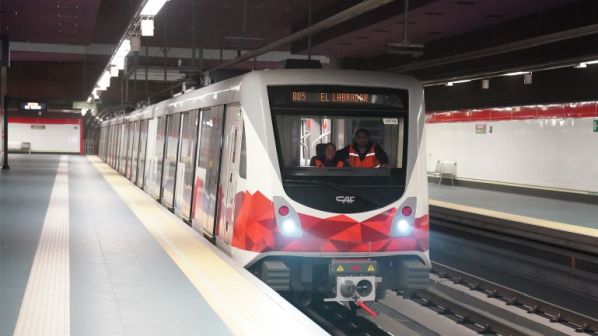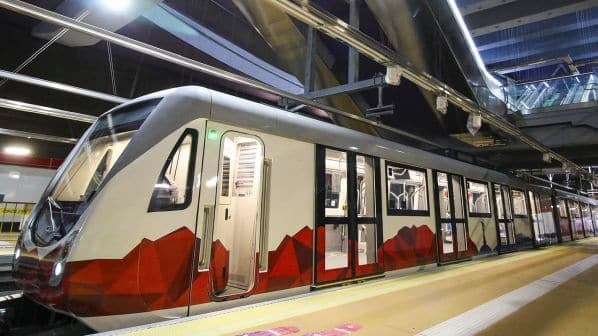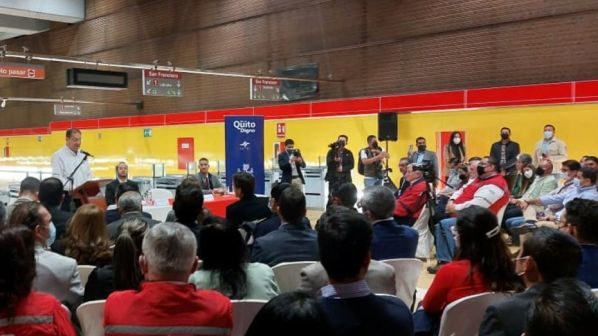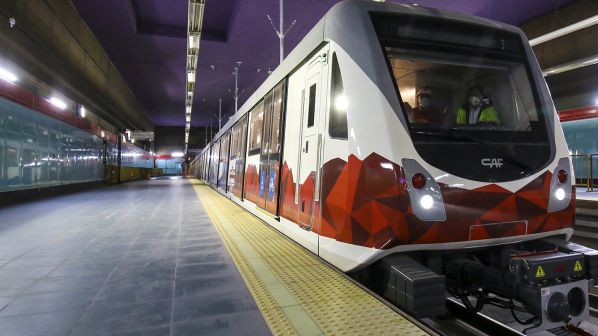QUITO in Ecuador has become the sixth capital city in South America with a metro after its long-anticipated Line 1 resumed operations on December 1.
Line 1 had officially been inaugurated on December 21 2022, with passenger services beginning in May 2023, but technical problems and political disputes shut the line down again after only nine days.
The 22.6km, 15-station line, running from Quitumbe to El Labrador, has a capacity of 400,000 passengers per day. It is operated with a fleet of 18 six-car trains supplied by CAF for $US 183m.
The end-to-end journey time from Quitumbe to El Labrador is 34 minutes, representing a saving of 1h 30min on the same journey by road. Services operate on Line 1 from 05.30 to 23.00, Monday to Friday, from 07.00 to 23.00 on Saturdays and between 07.00 and 22.00 on Sundays and public holidays.
Line 1 is operated by the EOMMT consortium of Metro Medellín of Colombia and Transdev under a six-year contract awarded in July 2022.
Plans for a metro in Quito were first laid out in 2010 after it became obvious that the city’s bus rapid transit (BRT) network was running at peak capacity, and that neither it nor other modes of public transport could be developed to provide additional capacity.
Construction started in 2016, with civil works undertaken by Acciona. Signalling was supplied by Bombardier (later Alstom) while Siemens was responsible for the traction power supply system.
Line 1 has been built at a total cost of $US 2bn, financed by the European Investment Bank (EIB), the Development Bank of Latin America, the Inter-American Development Bank, and the World Bank.
According to the World Bank, Quito’s new metro will provide safer and more reliable journeys for those depending on public transport and especially women, as senior transport specialist, Mr Alejandro Hoyos Guerrero, writes in a comment on one of the World Bank’s blogs.
“The majority of people are used to squeezing into old buses, with unreliable operation,” he writes. “The people of Quito people had a prevalent perception of insecurity and discomfort in public transport.”
Measures to improve passenger safety include the creation of a metro police force, as well as the installation of help points and CCTV.
“December 1 2023 marks an important milestone in the history of public transport in Ecuador, with the start of commercial operations on the very first metro line in the country,” says Transdev CEO, Mr Thierry Mallet. “With its route and the connections it provides to other transport networks, this metro has become the new backbone of public transport in the capital.”
For detailed data on metro projects around the world, subscribe to IRJ Pro.




